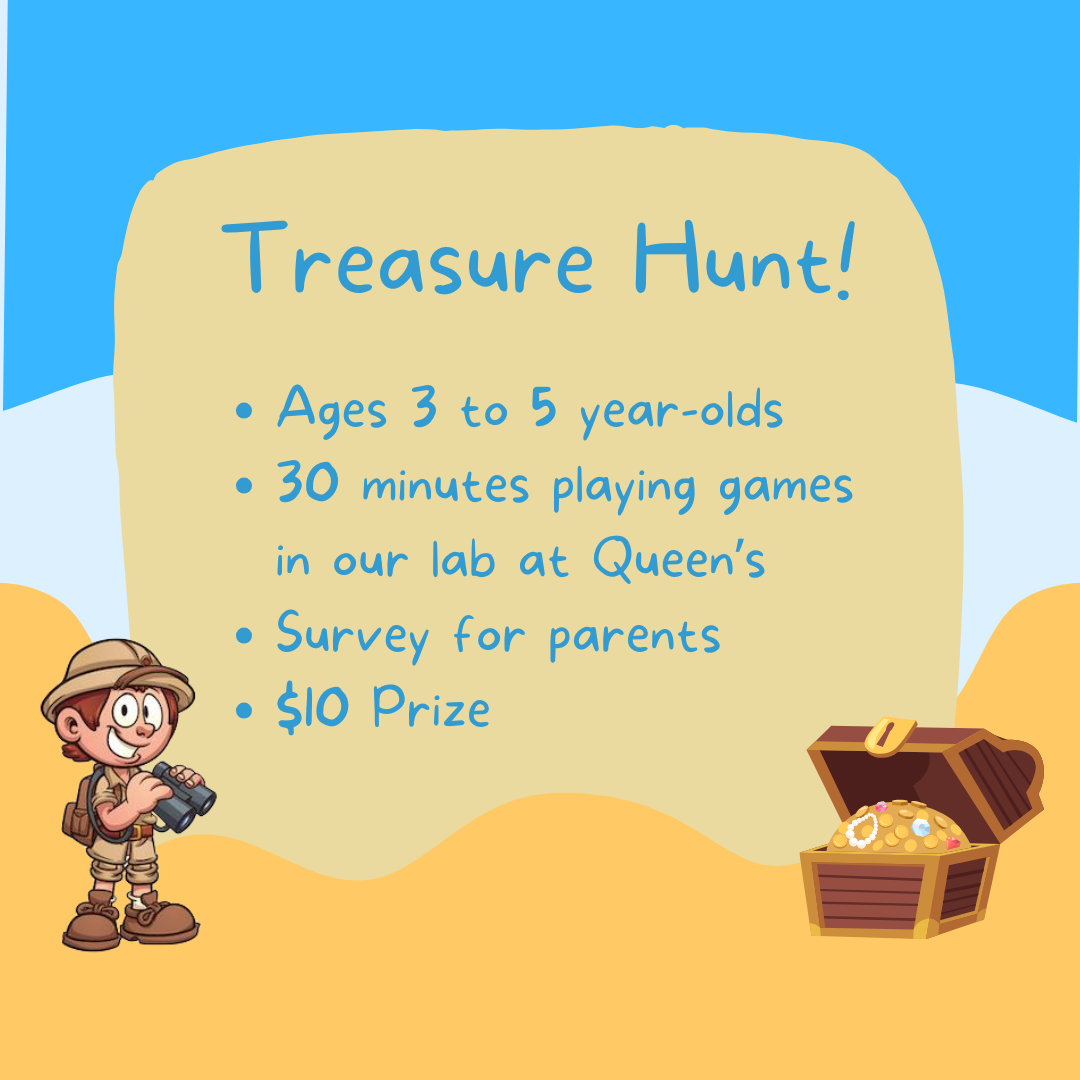Current Studies
In-Person
Online
In-Person
In-Person
Research Projects
Preschoolers’ Theory-of-Mind
Whenever we want to figure out why someone did something, especially something puzzling, we try to make guesses about their possible mental states — the intentions, desires, beliefs, and emotions that might have led to their behaviour. Our tendency to do this is called having a “theory of mind”. Several projects in the lab are focused on understanding the social, cognitive, and neurodevelopmental factors that shape preschoolers’ growing abilities to use a theory of mind. We are particularly interested in factors such as children’s flexible thinking skills and their brain development.
We are also interested in the role that children’s social interactions play both on their own and how they interact with aspects of brain development to shape the trajectory of theory of mind development. In these projects, we have been particularly interested in the role that parent-child conversations and social touch play in promoting advances in preschoolers’ theory of mind reasoning abilities.
Social Bases of Word Learning
Children, even preschoolers, are smart learners — they seem to be good at telling when a potential teacher is going to be a good source of information, and they avoid learning from someone who’s not. This phenomenon is called “selective social learning.” We have projects that research the cognitive and conceptual mechanisms that make selective learning possible, particularly when learning new words. Our particular use behavioural and brain electrophysiological methods to understand how children might differentially pay attention to, encode, or retrieve the words they hear from various kinds of teachers.
Mechanisms of change
The newest line of research in our lab is aimed at understanding why the preschool years are such a fertile time for cognitive development and conceptual growth in young children. Part of the reason might be because the cognitive mechanisms that are really important for conceptual growth are developing rapidly over this period. To test this possibility we have studies investigating developmental changes in children’s “executive functioning” abilities — a suite of skills that are important for flexible thinking and cognitive control. We also have studies that investigate developmental abilities in children’s abilities to “change their mind.” For instance, in one study we are looking at how children's ideas about how heavy an object might be change when they get new evidence that the object is actually much heavier. In another, we are looking at how children's initial about the contents of a box might change as they get evidence that their initial beliefs might be wrong. These simple studies are providing insight in to how the preschool years set the stage for a lifetime of conceptual growth and learning.




